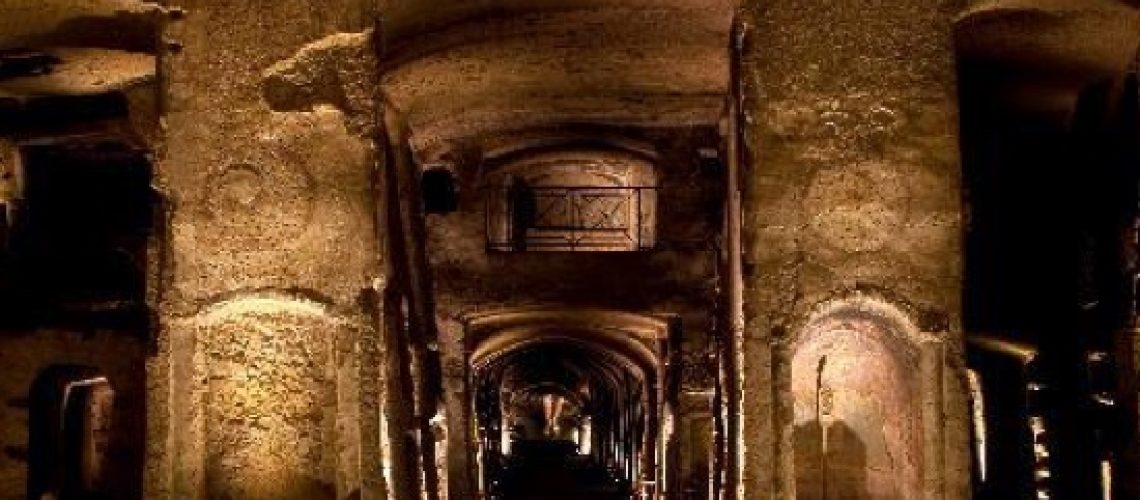Naples underground hides fifteen centuries of archaeological and religious heritage: “a hundred steps will let live a time travel” – an experience even more beautiful and accessible after a recent huge makeover.
Catacombe di San Gennaro: seventeen centuries, layer after layer
The San Gennaro Catacombs are an underground tombs complex the history of which spans from the II Century A.D..
The core of the catacombs was probably the shrine of a Roman patrician family, possibly converted to Christianity: the space was then donated to the Christian community.
Gennaro is a Saint and a martyr: he was beheaded in 305 A.D., during the Roman persecutions against Christians. The Catacombs hosted Gennaro’s grave from the V Century.
You are probably aware that Rome has many catacombs, but there is something unique about Naples’ catacombs that let them have a much longer history and some breathtaking, magic underground landscapes. The reason? A geological one.
The geological composition of the Naples’ underground is a sequence of layers of tuff, a volcanic rock which originates from deposition, compaction and compression of ashes ejected by a volcanic eruption: no surprise, as Mount Vesuvius looms over Naples.
But what is amazing is the fact that tuff is very easy to excavate: while the catacombs in Rome are narrow, claustrophobic dungeons, the Neapolitans extended the catacombs in halls and wide alleys – even a whole church!
The Basilica Adjecta is – to all effects – a three nave church, just… Underground, excavated in the tuff at the time of the translation of San Gennaro’s body.
The catacombs are a great example of the deep importance among the Neapolitans of the cult of the dead: that is the reason for which the Naples catacombs have been alive – pun not intended – for centuries, with a flow of excavations and art from the late Ancient history to the present days.
Catacombe di San Gennaro accessibility: the 2009 overhaul
The San Gennaro’s Catacombs experience is now even easier to get, more engaging and accessible for everybody: the lighting system has been completely refurbished, a tactile experience has been designed for blind and visually impaired and wheelchair access is available.

